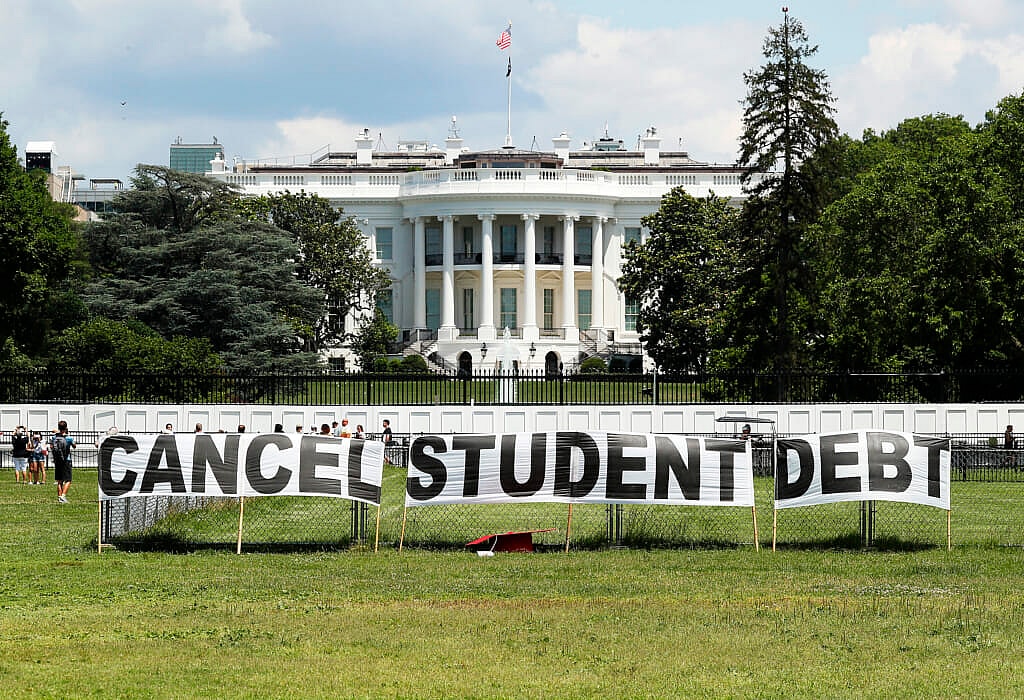A new study conducted by the Education Trust found that student debt disproportionately impacts Black borrowers financially and mentally.
The “National Black Student Debt Study” shows that Black students are more likely to borrow student loans and are more likely to struggle with repaying their loans when compared to their peers.
Victoria Jackson, the author of the study and lead researcher, told theGrio that one of the factors that add to Black borrowers’ financial hardship is the wealth gap and “wage disparity between Black and white workers.”
“The racial wealth gap is reflective of the accumulated effects of slavery, Jim Crow, redlining, discrimination in lending and discrimination in employment, which leaves Black borrowers with significantly less wealth to be able to do things like afford to go to college in the first place, but also then the ability to repay their loans,” she said.
Jackson stated that hiring discrimination also plays a role in Black borrowers being afforded “resources” to repay their student debt.
“The first thing that [discrimination] does is it forces Black people to have to go further in their education, therefore, taking out more student loans to even be in a position to receive the same economic benefit that a white person would get from a bachelor’s degree. So, we can see that and data coming out of the census where a black worker needs a professional degree to out-earn a white worker with a bachelor’s degree,” she asserted.
According to the study, 76 percent of the survey participants believe student loans are the primary source of financial stress, and 64 percent believe student loans contribute to mental anguish.
Wil Del Pilar, vice president of Education Trust, informed theGrio that he knows firsthand how student debt can be “overwhelming.”
“I’ve experienced some of these own pressures myself as a new graduate who graduated with $24,000 of student loan debt. My first job I was making $28,000 a year. I felt that pressure. I didn’t know how I was going to pay it back. I was stressed out about, you know, having carried that debt and really thinking about how am I going to pay this debt,” he said.
Pilar said some Black borrowers are “just out there on a ledge” and on their own.
Jackson told theGrio that some borrowers are greatly affected mentally by student debt.
“A recent March 2021 survey of over 2000 borrowers with high loan balances. And what they know that is that one in 14 of those borrowers who during repayment with the high debt to income ratio, were experiencing some form of like suicidal ideation,” she said.
Jackson stated that matters can get worse for some borrowers who default on their loans.
“It wrecks your credit, makes it more difficult to buy or rent a home, get a car, can even affect your ability to get a job. Then if you even go further into default, you know, you could potentially have your wages garnished. You can have tax refunds taken back or Social Security benefits garnished by the federal government. So can really have a devastating toll on a person’s financial health, but also their mental health,” she said.
Jackson told theGrio that the Biden administration needs to keep its promise of canceling student debt.
“It would be a huge financial boost and mental health boost for Black borrowers if the Biden administration forgave at least $50,000 in federal student loans,” she said. “When we look at who’s borrowing most and who’s struggling the most with repayment, it’s Black borrowers, and so I think it’s important that the Biden administration keep that commitment to Black people and Black borrowers,” she said.

Pilar told theGrio that he’s “hopeful” the Biden administration will fulfill its promise.
“We think that as an organization, we’ve pushed for at least $50,000 worth of student loan debt cancelation with no income caps. You know, I’ve said this many times, income isn’t wealth. Just because you have a better salary doesn’t mean that you’re necessarily done the things that lead to wealth building,” he explained.
“We’re hopeful and waiting for an announcement from the administration,” he said.
According to Forbes, President Joe Biden will present a student loan cancellation plan by next month. Since Biden began campaigning for the Oval Office, he promised voters that he would eliminate student debt.
Pilar believes that in addition to canceling student debt, colleges and universities should invest in more need-based aid.
“I think that institutions should be investigating in need-based and not merit-based aid. If they’re giving out a significant amount of dollars to the students who financially need it the least then what you’re basically doing is asking the students who need the most financial support to borrow more to be able to get that education,” he expressed.
Jackson told theGrio lawmakers should enact statutes that prevent borrowers from experiencing a student loan crisis in the future.
“We believe there are policies that Congress can put in place that would help us prevent having a student debt crisis in the future. The main things to do that are doubling the Pell Grant, and we also need a federal and state partnership to make public colleges and universities two and four-year free on a first dollar basis or debt free,” she said. “Also, we need a robustly funded college completion grant to ensure that students are not able to just get to college, but they’re also able to graduate.”
TheGrio is FREE on your TV via Apple TV, Amazon Fire, Roku, and Android TV. Please download theGrio mobile apps today!

